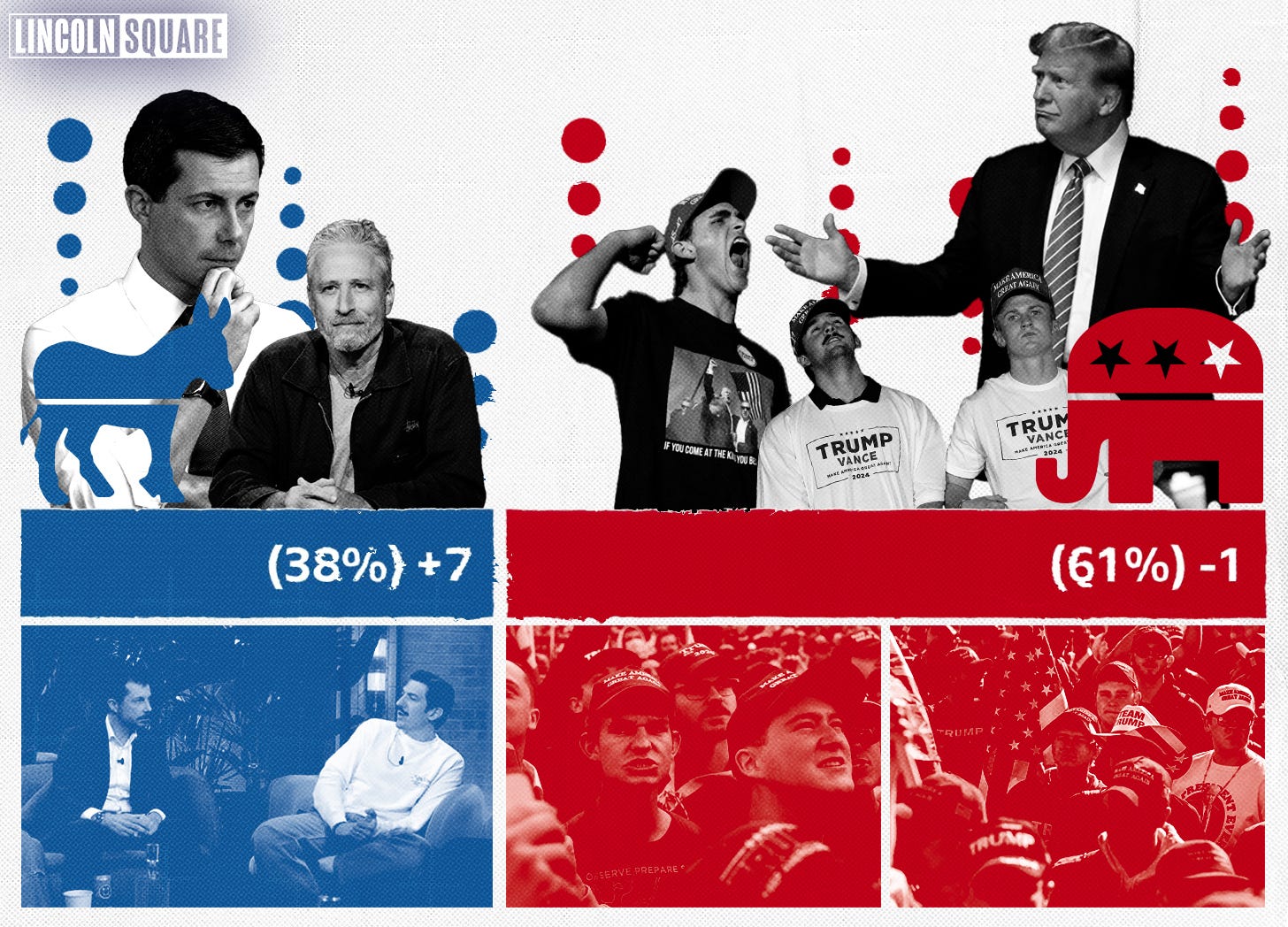How Democrats Can Win Back Young Men
MAGA influencers dominate online spaces where young men gather by providing someone to blame for their problems, while Democratic leaders rarely show up.
Hundreds — even thousands of young men line the crowd of a conservative rally in the summer of 2024. Most are wearing MAGA hats, everyone in some form of masculine-patriotic gear from head to toe. They’ve spent all afternoon standing in the large room at the conference center in the closest big city. As they get to watch their favorite influencers, the …





